Arnecon!We’re less than three weeks out from Arnecon game convention. It is going to be a very unique event. Since it is the first one, we’ve planned it as an intimate event without the huge crowds like other conventions. Of course, one can never predict what an event will be like until it happens. What we do foresee is a rare chance for those who attend to spend time with many of the original gamers who helped create our hobby. Wesely will run Braunsteins. Ross will run a game of Strategos. Phil Grant will have Dawn Patrol games. Megarry will bring Dave Arneson’s game table to the convention, where you can play Dungeon! board game. We have the PLATO computer game room which should be a real eye opener for anyone who likes computer games of all kinds. Chris keeps telling me, “This is going to be one of those memorable events that people will talk about for a long time to come.” We’re very excited to be organizing Arnecon. Check out the web page here: https://www.tfott.com/arnecon The Living Rules of ODnD Am I far off base with this statement: People who play OD&D are a very niche group who like to tinker with their game rules. It is a very old school mindset which does not appear in most modern RPG games because the original rules for D&D are completely flexible (read this as incomplete) and open to interpretation by each referee. One can say the same for Advanced Dungeons & Dragons. While it was meant as a much more strictly ruled and complete system, most gamers would streamline portions of it to make it play faster, more smoothly, or simply as a matter of personal taste. There are constant debates over rules. Ok, let’s call them arguments. Which edition is better? If you play OD&D the rules are badly written. They contradict themselves and there are huge gaps for how to adjudicate portions of it. Coming up with solutions during game play is the only way to truly make it work. Every game master learns to do it as part of normal game play. Yup, as written, the rules are full of clunk. I admit it, the original game is a total mess. But, the original design also has a lot of good ideas in it too. And many of them are very sublime. Yet, the problems are there. Something has to be done. With each addition and iteration which begins with Greyhawk Supplement and continues through Holmes and AD&D, then into every other actual edition the rules are changing. Some things are added for better game play, but many others are attempts to fix problems and fill gaps, which are such a mass of details that I can’t list them all here. Something to consider: every RPG since D&D is just a variant on the one game which attempts to plug holes in the rules. The desire to fix problems with such things as a universal one size fits all mechanic is the greatest flaw in these games and it begins fairly early on. The assumption that everything can be reduced to simple die rolls quite literally destroys the RPG as an immersive player experience. It changes an RPG into a computer game on paper. Rob Kuntz told me this, “ You can’t rule reality.” I am now convinced that there is such a great difference between zero edition and 5th edition that the two games are not even the same thing. I always urge people to at least try the old game. Original D&D 3 Little Brown Books (3LBBs) with the supplements, perhaps a bit if Holmes Basic D&D added in, and a Monster Manual. Even a variant like our own Tonisborg Zero Edition rules by Dan Boggs can fall within this range of complete, yet, perhaps incomplete, games. No OD&D campaign and its rules are like any other, because they can’t be. What most do not understand is the true nature of the old rules. Perhaps the closest analog to the old rules is a business plan. A business plan is a living document. You create your plan in order to outline your purpose and goals. Here’s the rub. Very often a business will be moving along and they will realize they may be doing something much different from what was projected in the business plan. Oh oh, time to go back and change the business plan and assess where things are really going so the business can be more successful. The last thing you want to do in a business is remain too rigid and not address how both what it is doing and what the real world is doing have changed. It’s the same for every OD&D game master. Oops, I need a rule, or oops I need to change a rule. The play style is open to such an extent that a referee may not be sure if they are making a new rule, or simply making an on the spot ruling. There is a difference here as well. A rule is not the same thing as a ruling. I have blogged about rule variants which I now think are too complex and need to be handled by rulings - see how these rules keep changing real time? This is why I refer to OD&D as being the only truly living published game rules for an RPG. Most other rules which come later, not just D&D, are meant to be played as the publisher intends you to play. OD&D is like buying a set of legos. You can build what you want. Today's rules do not mention the possibility for individual gamers to change them as D&D does when stating - these rules are guidelines. It is still there in AD&D, but it is hidden in the appendix. People who play within the milieu of ‘Old School’ game rules are doing something very different from almost all other gamers. They may not be published authors, but for the most part, they are all game designers. If you look at any other game from the era of D&D and before, you see the same thing, a core system which remains pretty much untouched, which then has home rules attached to it, along with on the fly rulings to resolve specific events. The mindset of having loose rules comes out of war gaming. There are very specific kinds of war games with very precise rules and then there are all the miniature rules which require a bit of interpretation.
Chainmail is a perfect example. You have several systems within one book. And you also have a lot of conditional rules you can decide to use, or not use, based on the type of battle you are trying to simulate. With a war game scenario design can introduce problems. An entire war game session can quickly reveal itself to be unbalanced and a game needs to be scrapped halfway through. With D&D your players may not notice any changes at all, but you will become aware that it just doesn’t feel like your game is playing correctly and you can adjust course half way through a game session by changing the rules. (I expect a bit of blow back on this idea of changing the rules mid game.) I think of my own game group and what they are forced to go through within my ever evolving rules systems. First it was a home brewed and streamlined variant of 3rd edition (My mash up of Empire of the Petal Throne, Metamorphosis Alpha, and OD&D) written on a few sheets of paper. Then it morphed to a sort of by the book Holmes Basic, then it became more like OD&D, now it is mutating once again. It is an endless search for the sweet spot on just enough rules to make it work, yet, not so many as to become too rigid for it to work. There are many rules which were tried even before D&D was published. Hit location, defensive saving throws, spell points, skills, you name it and they had thought of it way back then. Arneson speaks of these things in many of his interviews. Some gamers claim Gygax created the perfect system with AD&D and that one should only play AD&D rules as written (RAW). Well, it turns out Gary didn’t even play his own system that way. A lot of what he said about AD&D was simply marketing speech to help sell product. Some will recall the obsession with competitive tournament play that was always being mentioned in The Dragon magazine. That was there to help sell modules. It had no relevance to most gamers running their home games for their friends. Arneson always said his rules were constantly changing. Both Dave and Gary even published their own RPGs after D&D. Over time, both went through the various stages of creating more complexity within their rules in order to fix the problems they saw. Yet, with every change, there were other unexpected problems being created. It was a huge game of rules Whack-A-Mole. Smash one bad rule here and another problem arises over there. Later in their lives both creators of D&D appear to have gone back to using their original rules when they would run public games. Each likely had some of their own unwritten rules, which they kept in their head, but they were essentially running the same game. For my own game, ever since I first played, I keep adding in and trying, and often quickly removing, little rules. My players are used to me saying, "yeah, I tried that and we're going back to this other rule.” What I have discovered is how complexity never solves game rule problems. It is within the referee rulings and very simple rules that the game plays well. I know for myself, this ever changing system is part of what keeps me interested in playing D&D. The one problem I find is how to name this style of play, as Old School sounds somewhat concretized and stuck in it’s own ego. I would say the same for OSR. I am not an OSR gamer by any means since I’ve been playing since before the OSR term. In the Lost Dungeons of Tonisborg we call it Traditional Role Playing, maybe that sounds a bit stuffy. Putting titles onto something often freezes that thing in the state it was at when the name was created, thus Living World, or Living Rules doesn’t quite fit either. Maybe the best thing to say is, “We’re playing D&D.” It’s up to everyone else to learn that D&D, as it was played with the old rules, is a constantly evolving play style that moves with the times and never gets stale.
0 Comments
|
DVD'S, Books, T-shirts, games and more available on our store.
AuthorSecrets of Blackmoor is a Feature-length documentary about the birth of the “Mother of all Games;” Dungeons & Dragons. Archives
January 2024
Categories |
Privacy Policy
All Contents Copyright © 2023 The Fellowship of the Thing, Ltd. - All Rights Reserved
All Contents Copyright © 2023 The Fellowship of the Thing, Ltd. - All Rights Reserved

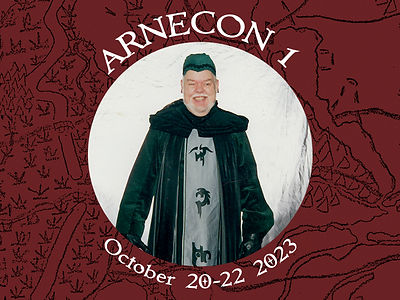
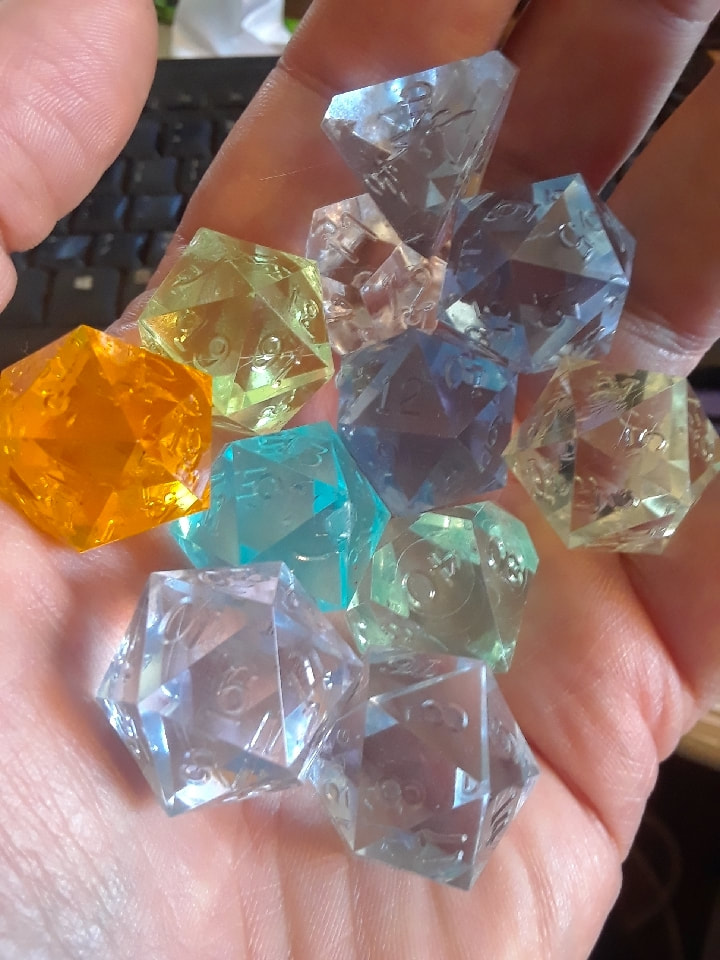
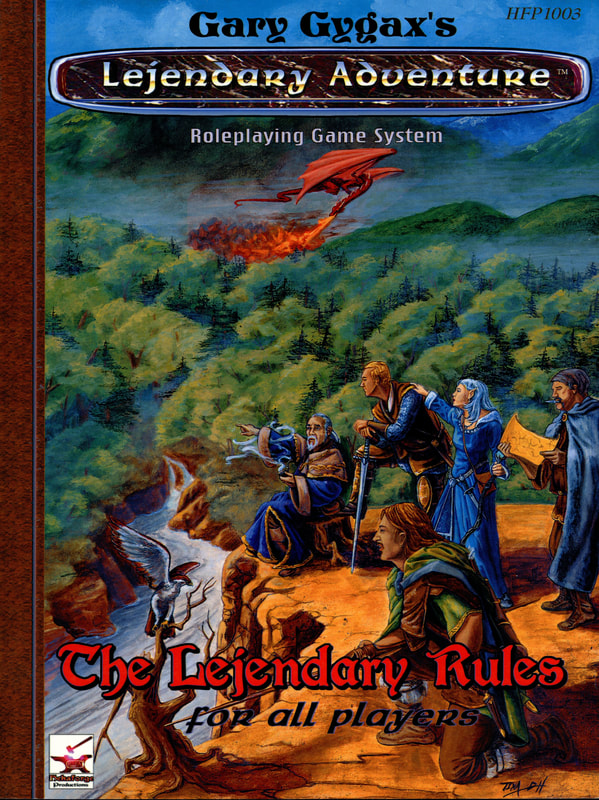
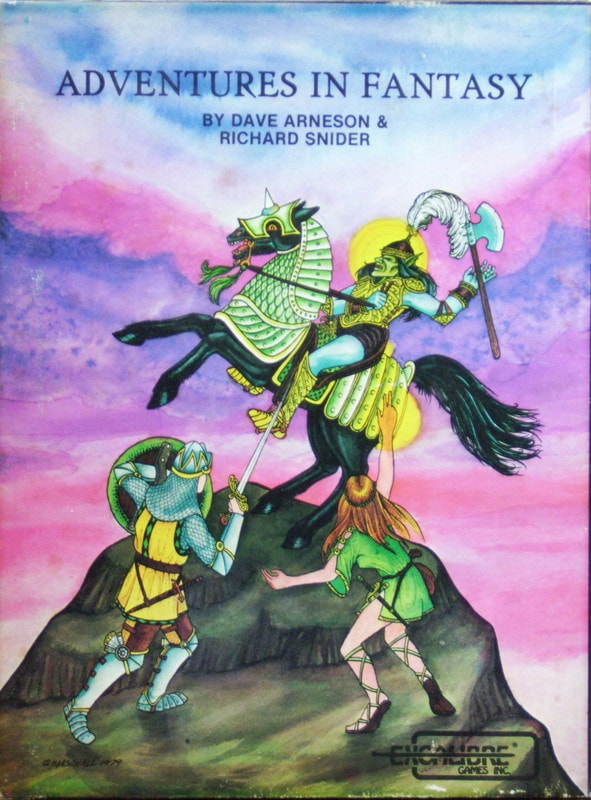
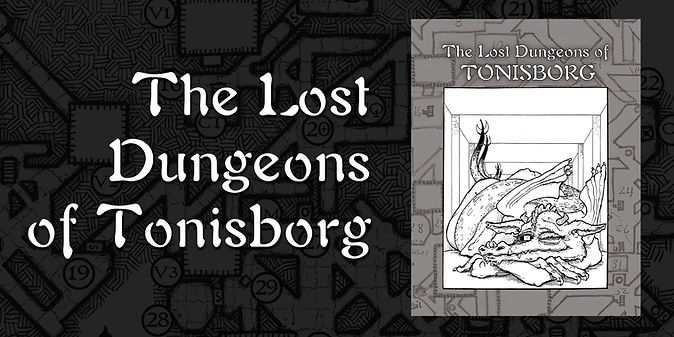
 RSS Feed
RSS Feed